When All We Do is Sugarcoat the Truth
Rejecting lies disguised as convenience, marketing against the maternal, and the prudent feminine role of it all
“So when did you get into health?”, the man working the counter at the tiny health food store asked me I as I awkwardly browsed while he awkwardly watched. I answered with a random anecdote about quitting gluten for three months at one point and threw in some Weston A. Price reference to appease him and lower the awkwardness level but in my mind I was only thinking “what sort of question is that?”.
I thought this because I suppose I do not conceive of health as something we can be “into”, meaning something we happened upon at some point in time and chose as a topic of interest, complete with many things to purchase. It would be like saying “I’m into fertility” or “I’m into nature” or “I’m into beauty”. My retort to all of these being “well, duh, of course you are”. What people actually mean is that they are into optimizing these things via various means, usually involving monetary and time investment.
The health question made me consider the fact that health (for our purposes meaning a general state of wellness and homeostasis) isn’t considered inherent to the human experience, at least not in our current time and place. It is considered a commodity, something you must fight for, something you have to pay for, and a privilege.
Wellness of the human body is not perceived as a right or as the default, nor as something we have to preserve via discipline and prudence. Perhaps we have always had a fickle relationship with this sought-after state of being, but I think if so, it was in very different ways. Somewhere in between rat-induced plagues and rampant cancer, there has been a shift of how we consider health itself and whether or not we consider ourselves to be healthy.
In the past, people were more subject to the whims of nature. In the present, people are more subject to the whims of corporatized interests. Both ruthless, yet one with a more conscious and calculated ruthlessness, the other more chaotic. What we forget is that there is often order behind the chaos of nature.
In the the same way, we seem to forget that there is often ill will or at the least, disregard, behind the ruthlessness of the systems which manipulate and touch our lives. Many (certainly not all) have a tendency to assume the best, and I do think there is likely some sort of biological imperative for this fact, being that humans do need one another to survive. The issue lies in the propensity for people to view companies and industries with the same regard and benefit of the doubt as they do for individuals, forgetting that which is at the helm of every single corporate ship—profit.
Greed steers business, and manipulation is greed’s right hand man. I don’t want to assume bad intentions in every business venture of course, I know there are many good people doing business and making money on fair premises. It would seem though, that the big business companies got to where they are via a certain flavor of ruthlessness though, and I think it is foolish to assume the opposite.
Where manipulation touches us the most is through marketing, and marketing takes aim at insecurities and pain points. With women, the current tactic seems to be “target insecurities but make it empowering”. For this reason, among others, I am personally done with the term “empower” in general as it basically implies there was no inherent power there to begin with—it had to be given to us. In these cases, given to us via consumption.
There is a pattern, when you look at ads through history to the present, for ads to target the pain point of “lack of convenience”, especially in regards to products made for women. I was reminded of this recently when a friend who likes to thrift a lot (more than I do even) gifted me a stack of old cookbooks and recipe pamphlets (ads). Reading some of them read as a study in feminine manipulation, to the point that it was actually laughable. Laughable on the surface, but actually quite deleteriously consequential under that surface. Consider the following example, some select pages (there were other pages about how Karo is beneficial to older children, the elderly, and the woman’s husband) from a vintage advert for Karo corn syrup, included in the stack given to me:
Feed your vulnerable baby PROPERLY! Don’t you want your baby to be a KARO BABY who gets enough carb-o-hydrates?! KARO BABIES are superior in strength and energy! Doctors and unnamed “child specialists” LOVE Karo, every single one of them! Mothers too! Karo LITERALLY SAVES LIVES. Don’t worry about losing out on Karo once your baby is off of formula, pour it in their OJ! It’s so sweet and delicious, they will DEMAND it poured on everything! Don’t be a SAVAGE, feed your baby some damn KARO!!!….Oh, also, Karo is SELF CARE for you dumb housewives, better stock up!
All jokes aside…people, women, fell for this. The willingness to betray one’s own inherent worth, abilities, and qualities which make us valuable and useful in favor of ease is a downstream effect of societal pressures, marketing and trust in experts that don’t have to actually earn trust but instead are endowed with it via their credentials. There is a real lack of a sense of skepticism. This is also the impact of many years of women being exposed to marketing which preyed on their often unfortunate circumstances.
The shift that happened with industrialization—that from the individual and the home being a productive unit to instead a consumptive unit—has created an ongoing curated helplessness, and as time marches on, the dependency gets worse. The loss of the cottage economy created the loss of the industrious family and in doing so has produced people who are willing to eat up the endless pharmaceutical commercials and fake diet foods, among other things, at will. This is the result of both necessity (having to leave the home to earn wages) and a growing penchant for whatever is easiest that comes along with that necessity.
Just consider the havoc baby formula marketing has wreaked on human health since the advent of that particular tactic against women and babies began many years ago. JK Galbraith, in The Economics of Innocent Fraud: Truth For Our Time, states:
“No significant manufacturer introduces a new product without cultivating the customer demand for it. Or forgoes efforts to influence and sustain demand for an existing product.”
The baby formula industry, which preceded the Karo of above (Karo is just a handy additive), saw the necessity that arose with industrialization and certainly rose to the occasion, doing just what Galbraith describes above—cultivate demand, then influence and sustain that demand—to this day. The following excerpt about The Fall River Study, from Gabrielle Palmer’s excellent The Politics of Breastfeeding, illustrates this perfectly:
“As would be the pattern throughout the 20th century, mothers who stayed home, as well as factory workers, were also artificially feeding. The 1908 Fall River study of infant mortality in a US textile manufacturing town cited artificial feeding as a significant cause of the excessive deaths from diarrhea. Other factors associated with this high infant death rate were a high proportion of 'foreign-born' mothers, high female illiteracy and a high birth rate. The stress of rapid change, the absence of supportive female relatives and the attempt to adjust to an alien way of life disturbed the cultural practices which protected mothers and babies. The availability and promotion of commercial foods had a demoralising influence on both individual and social confidence in breastfeeding. If mothers believed that alternative infant foods were good, and no one said they were dangerous, what reason was there not to use them? If absorption into a new society leads to the abandonment of customs of food and dress, It is not surprising if infant feeding practices change as well. If replacement feeds were used, a woman's breastmilk supply would decrease and her need for the substitute foods would become established. This mixed feeding would have made her more likely to become pregnant; more closely-spaced births would have increased the risk of death for women, toddlers and newborns.”
With culture loss for immigrants, the loss of female friendships and family support (for many), and the demand for women to work in places like textile factories rather than working at home making textiles as they always did prior to industrialization, there too was a loss of agency in the most basic of women’s work—infant feeding. The perception of breastmilk and breastfeeding as natural law and therefore a natural right for babies was lost at this juncture. Perhaps this was one of the defining factors that created the current perception that human health is a privilege rather than an imperative. As marketing campaigns grow more sophisticated and more prevalent, the consuming of their content becomes second nature, something we don’t even notice, it is in many ways the backdrop on which we move through our lives.
We have to recognize the way in which the severance of community and tradition by way of “progress” has left us uniquely vulnerable to the claws of business and consumerism.
One cannot even drive through the countryside without billboards telling us about the sex shop or strip club at the next exit (telling little girls that that is what women are supposed to be) or how we can have marijuana delivered to our doorstep. Marketing follows us.
The impact of our own never-ending consumption of consumptive marketing in many ways has, in some instances, turned us from mere consumer into marketer, only we are not merely marketing—we are teaching. Worse than this, we are not speaking to costumers, we are often actually speaking to people we have relationships with or are in care of. It is just another example of how the feminine inclination towards agreeableness and kindness has been hacked away at via vampiric, destructive systems. There is a reason why to “hack” something means both literally destroy it and also to overcome and outsmart it—it is one and the same.
The ongoing consumption of sugarcoated lies which are designed to make lifelong consumers of us has played a part in the destruction of the honorable feminine roles of holding the line, truth telling as a matter of respect, and discernment honing. To put it simply, being lied to makes it easier to be a liar.
We should have a heightened awareness of problems and a desire to work through them with honesty and compassion, but instead, it often seems we are either creating them or actually nurturing them without realizing it. This can be the case in many instances, but for this essay’s purposes, I will bring it back to the topic of health—the foundation of the human experience.
We cannot optimize health while also optimizing convenience. Further, instead of optimizing health, we should instead look to simply nurture it. When one considers it that way and compares that sentiment to the convenience piece, it makes it quite clear. Health and well-being are deserving of cultivation, the idea of cultivating convenience is just silly. Along with prioritizing convenience often comes the need for a certain amount of excuse making.
In making these excuses, what we are often doing is validating making space and time for things which don’t actually bring our souls happiness and a sense of well being, but instead create fractures and dysfunction but may feel good in the moment. We have to recognize that temporary enjoyment brought to us via convenience and the excuse making that comes along with it often creates long term suffering and a disjointed sense of self. These things also just serve to further legitimize the disjointed, unaligned way of living that modern society and economy has thrust upon us. This can show up in our homes, our mothering, our relationships, our vocations, the way we care for our bodies, and yes, our health.
I work in a hospital, and along with this sort of job, comes a lot of hoop-jumping. By this I mean lots of continuing education, annual check offs, annual online modules, renewals of licenses and certifications…the sort of upkeep which corporate CYA culture comes with. One of our online modules this past year was entitled “ Bariatric Sensitivity”. Here’s an example of what that looked like (quotes from power point): “Some healthcare providers believe that obesity is caused by the patient’s lack of willpower, refusal to stop eating or lack of exercise, a lack of caring for oneself, or noncompliance”. Also this: “Obesity has a number of causes: genetics, gender, cultural environment, socioeconomic status. Sociological factors like “is the neighborhood safe for exercise? Is there access to a community center?” And finally, this: “Medical reasons: Diabetes, Hypothyroidism, Peripheral Vascular Disease, Heart Disease, Pain Medications, etc…”. This is of course followed by lots of talk about “inherent bias”.
Listing the medical consequences of obesity, such as diabetes and heart disease, as the reasons for obesity is such a perfect example of the dishonesty surrounding the healthcare industry, and therefore, healthcare practitioners and even healthcare consumers themselves. Yes, there certainly is a vicious cycle when it comes to these things, but that cycle more than likely started with obesity, not heart disease. Asking if there is a community center as if there not being one is a reason someone should be overweight is dishonest. Stating “gender” as a reason for obesity is dishonest. Chastising workers who know that obesity is often a result of cumulative poor choices as if they are just being mean and biased is dishonest.
This is the rhetoric we are expected to uphold. A rotten slop of lies to serve up to the consumers we “serve”. In this way we become the middle man for the marketers of things like Ozempic. It is not a coincidence that healthcare is a female dominated field and nurses like myself are the ones being told to “watch our bias” and perpetuate lies. The female agreeableness that female-dominated fields rely on for a great manner of things makes it easier for these companies to place these expectations on their workers. You can see this same phenomenon with teachers who let middle schoolers changes their pronouns and names at school because they took a training that said that the kid will kill themselves if they don’t. The expectation for these things is for us to say “oh, okay!”, keep smiling, and carry on per their orders.
Unfortunately for them, I do not think the female inclination toward agreeableness means women should simply go along with these ongoing dishonesties. I think that along with agreeableness, we have the ability to tap into discernment and with that, the ability to communicate the truth to our patients, students, and friends and family as a matter of respecting them enough to trust them to both handle the truth and use it accordingly. Does that mean everyone will? No, but that doesn’t mean we should be willful accomplices in corporate marketing warfare against the human spirit and body.
The virtue of prudence, called the “mother of all virtues” for a reason, can offer us much here. Sound judgment, discernment, consideration of all contributing factors that play into good decisions by way of being able to recognize truth versus lies. Prudence is a practical sort of wisdom.
It is prudent to recognize that our health and wellness are our obligations to tend to as vital beings. It is prudent to pay attention to the fact that marketing only exists to sell us things, and that those things often have been fed to us as needs when they are actually wants. It is prudent to recognize that the “wellness industry” is just as predatory as the “sickness industry”. It is prudent to remember our roles as women and mothers and members of society is not to spread lies but to hold the line that separates those lies from the truth as a matter of upholding human health, and therefore flourishing, for those around us.
To become Prudence personified is the ultimate feminine endeavor, and the infinite striving for such is the ultimate menace to the anti-vital systems that preside over society.






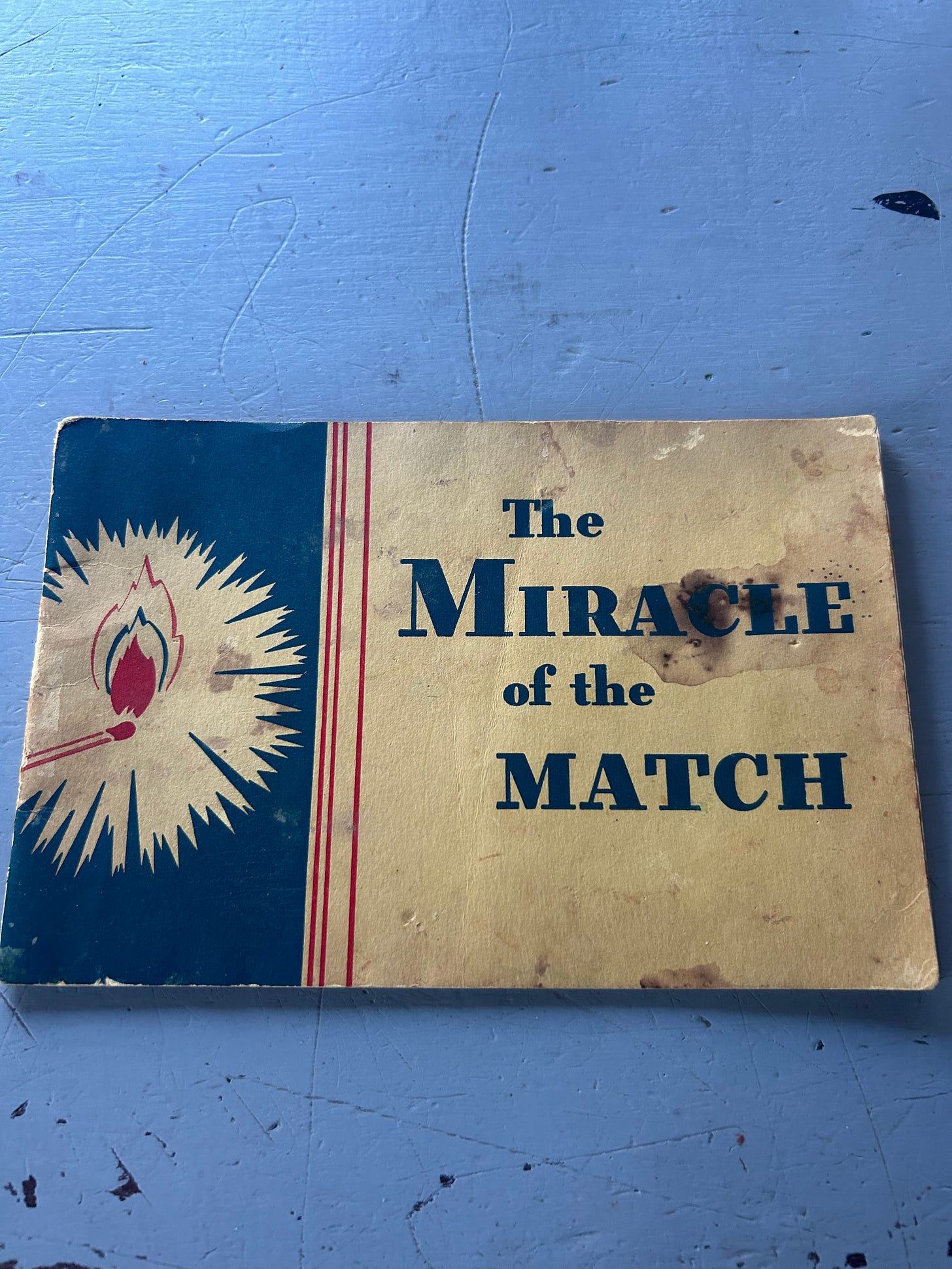
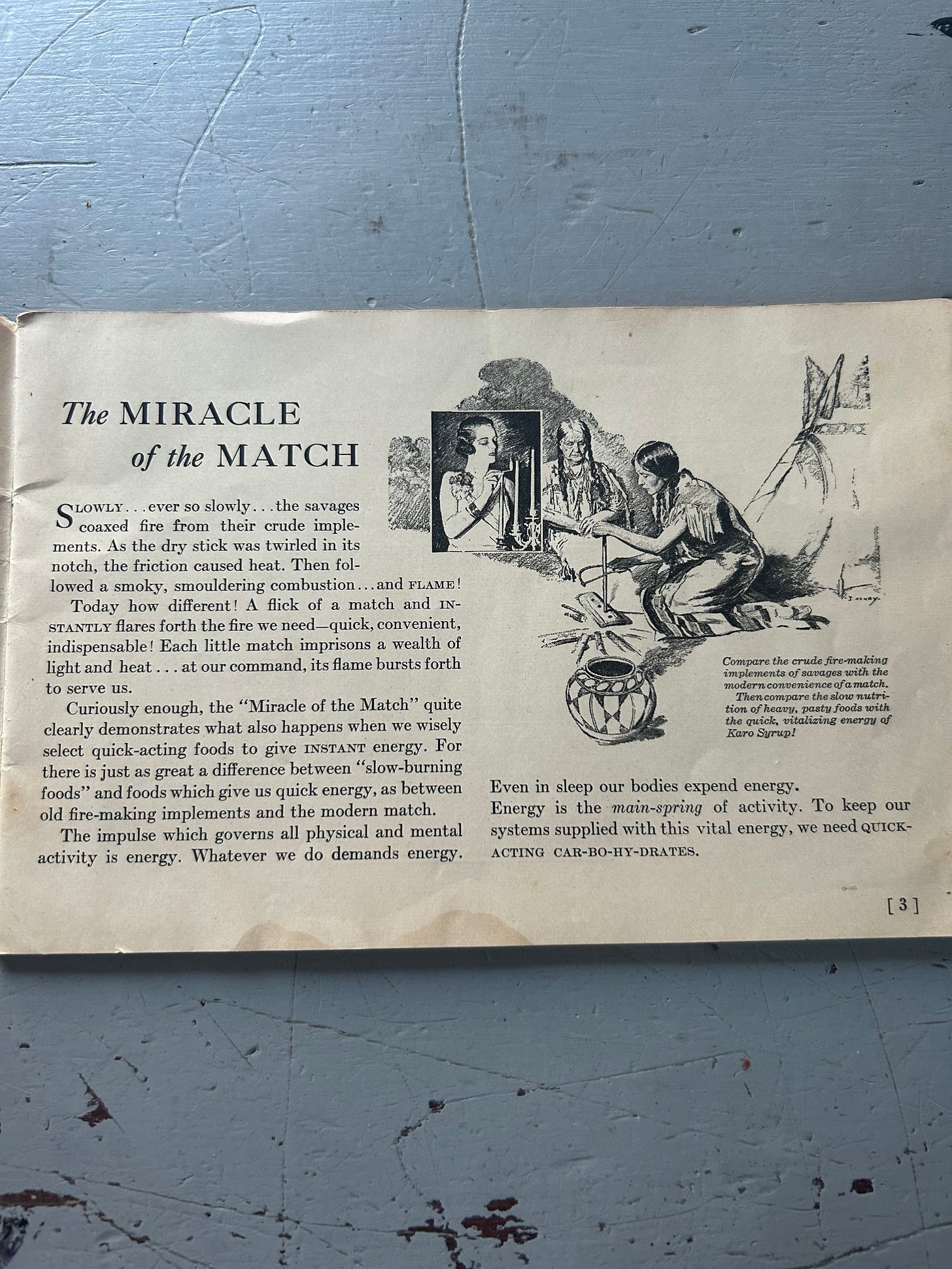
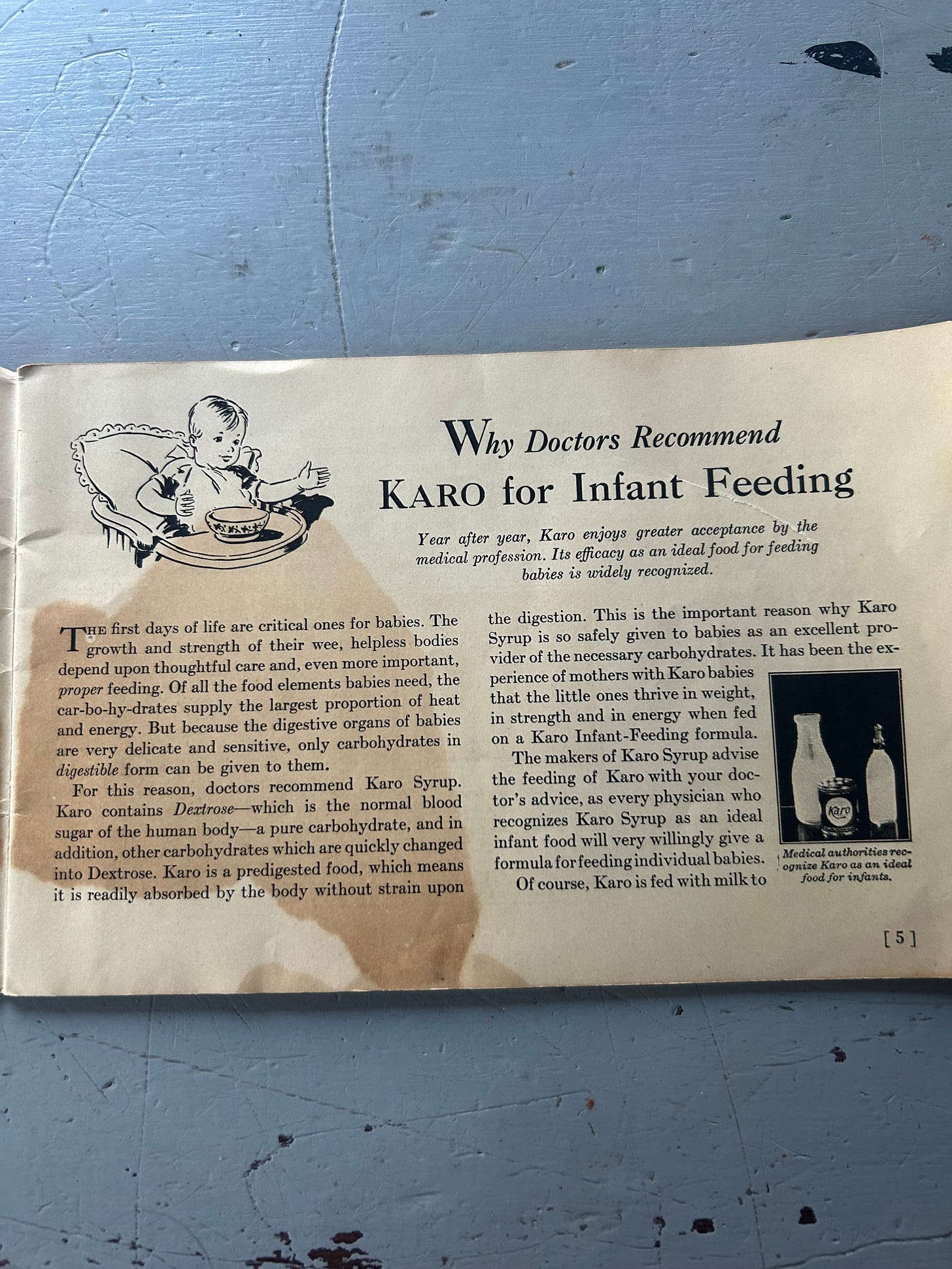
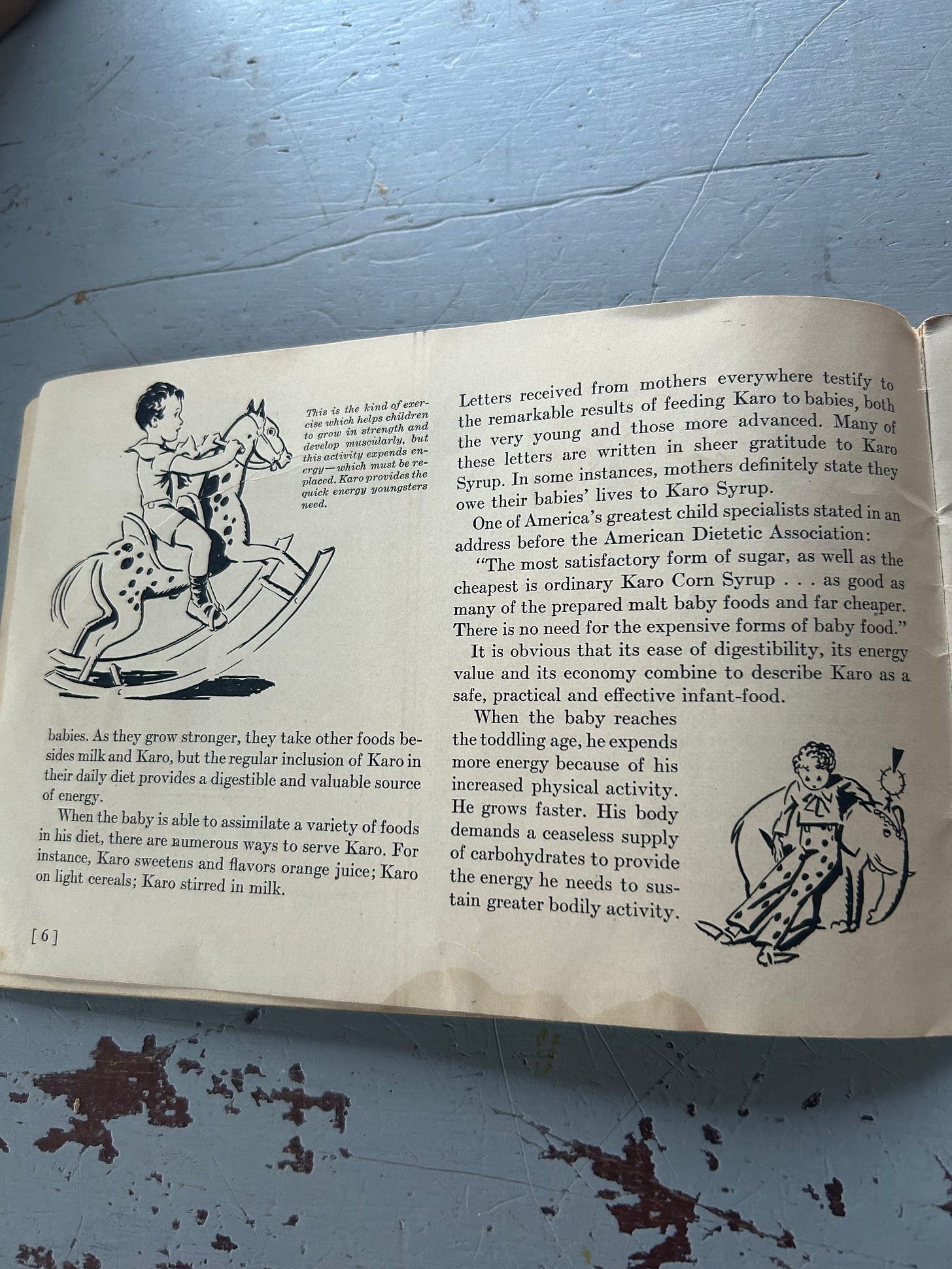
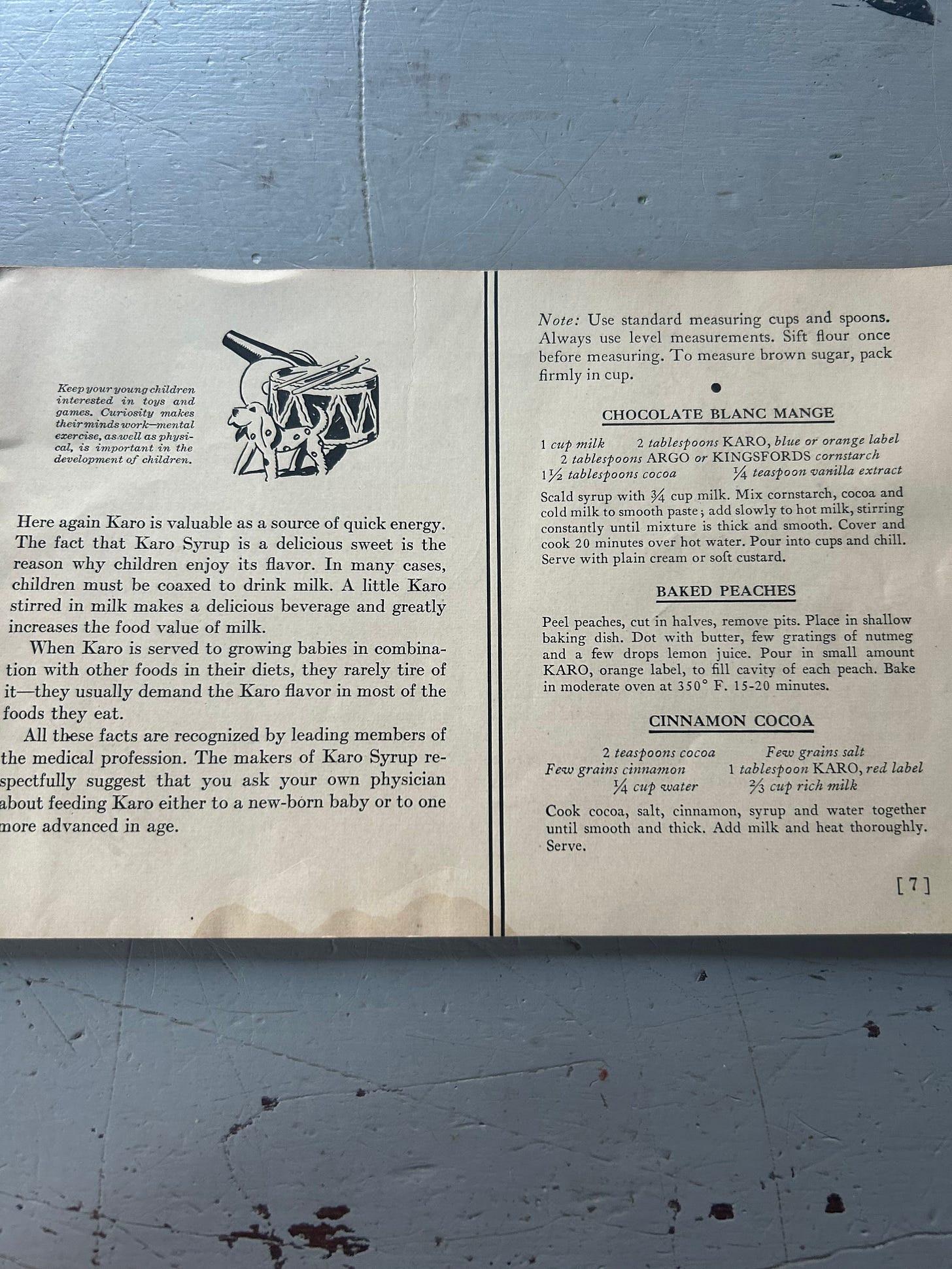
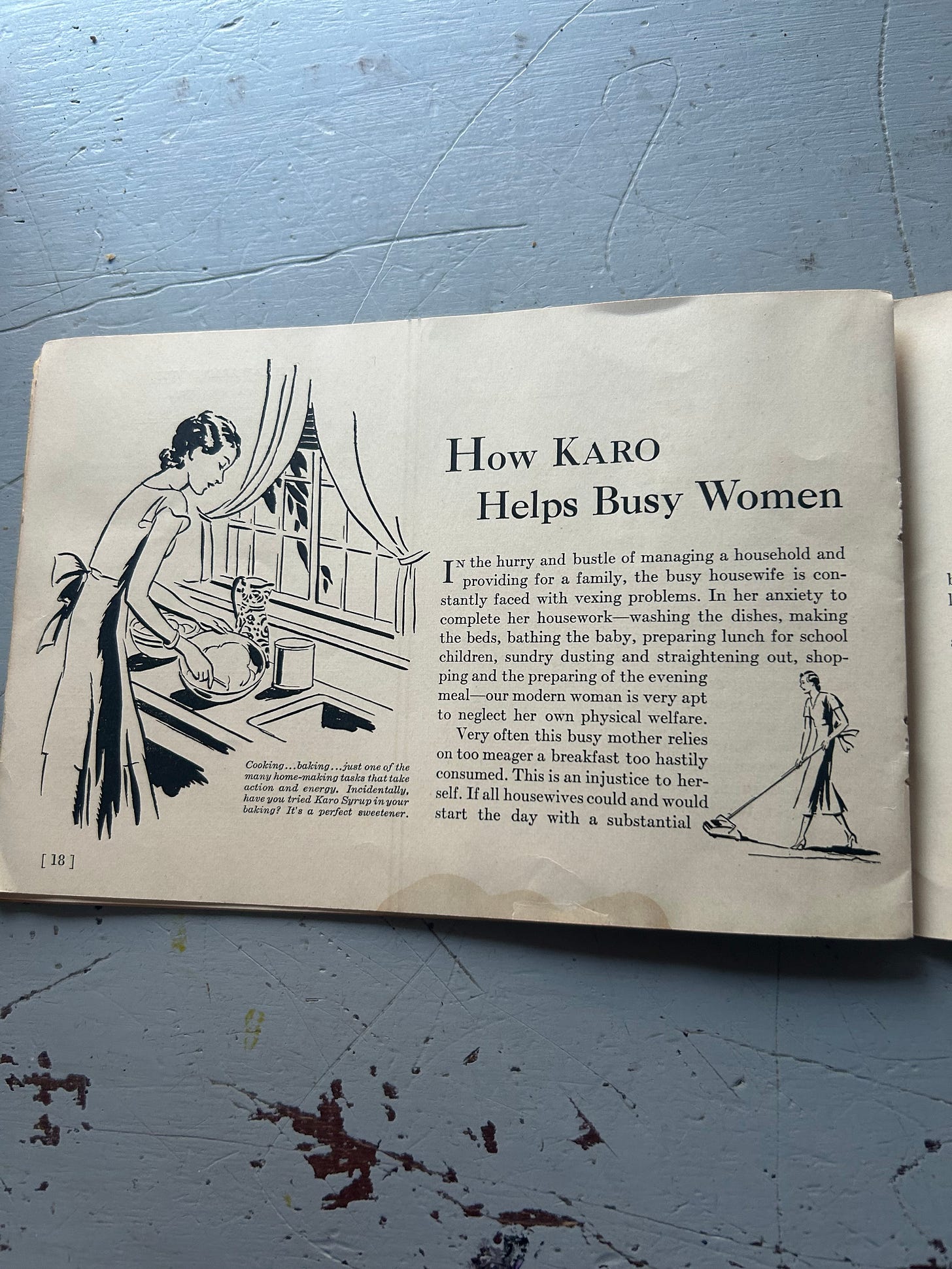
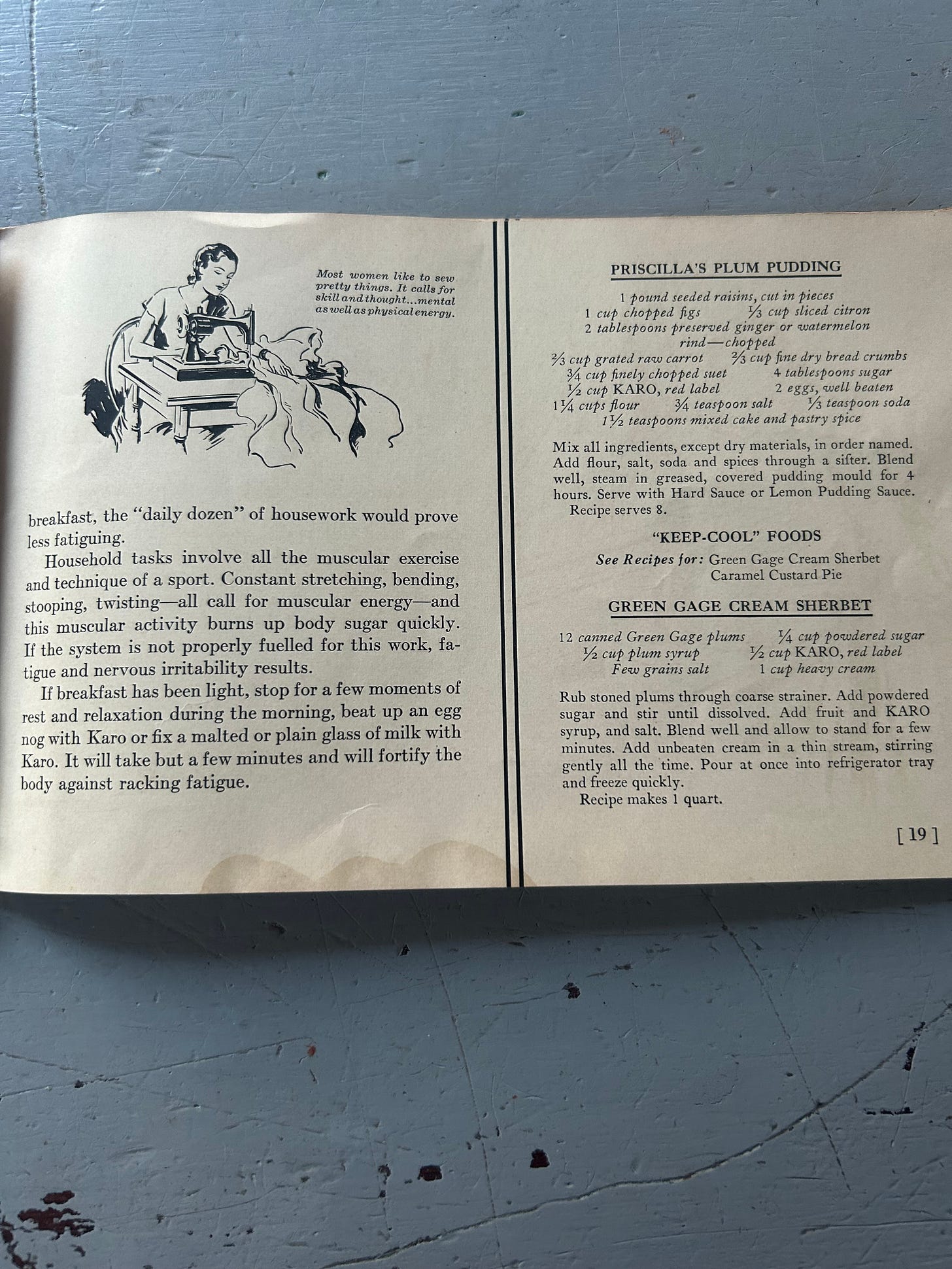
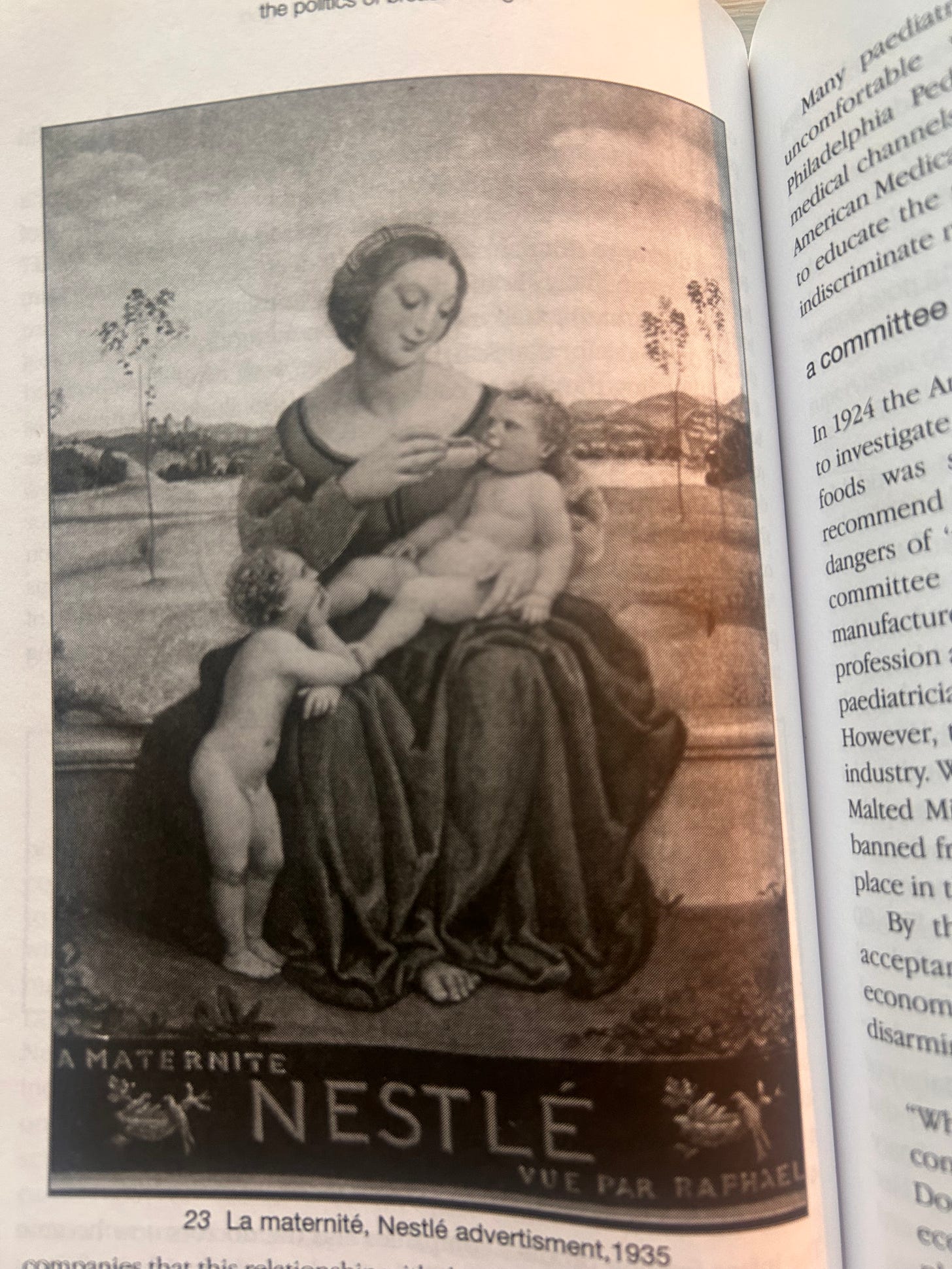
Too much here to comment on! But geeez I appreciate the way you think. So much.
The marketing gurus seem to have realised that it's women who are the key influencers in the family.
Women buy the groceries. They feed the kids and the husband, etc. They're the ones interested in promoting 'good health'. At least that was the case when I was younger. Maybe it's different now.
But I can't help thinking that, in the Garden, Satan went for Eve not Adam when he sought to exert his influence over both.